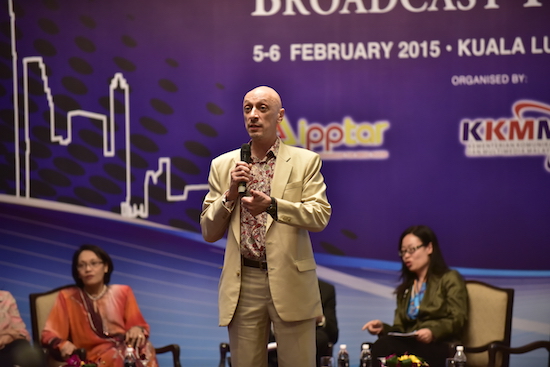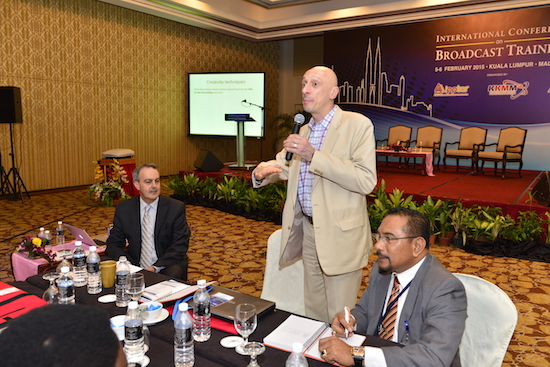
Dealing with Multitaskers
As media becomes more complex, broadcasters need to understand that individuals and communities are increasingly using various media simultaneously and interacting, and such multitasking has had an impact on how they engage with individual task or activity.
As media becomes more complex, broadcasters need to understand that individuals and communities are increasingly using various media simultaneously and interacting, and such multitasking has had an impact on how they engage with individual task or activity.

One impact, as evidenced in a study by Dr. Glenn Wilson, a psychiatrist at King’s College London University, indicated that an individual’s functioning IQ temporarily drops 10 points when multitasking. Other psychologists claim other side effects are short term memory loss or difficulty in concentrating
Dr. Mike McCluskey, International Media and Broadcast Consultant from Australia told delegates of the 3rd International Conference on Broadcast Training in Kuala Lumpur, that as audience’ attention span and capacity to take everything is reduced, broadcasters need to try and reach the audience on multiple platforms with multiple versions.
“You have to share your audience with other activities and other media. Your content has to stand out,” he said.

In his presentation Dr. McCluskey suggested a ten-point plan for broadcasters and journalists to capture multitaskers in the media world.
These include, among others, making the content matter to the audience; using attention grabbers at regular intervals and good storytelling techniques such as story mapping; knowing how to use digital broadcasting tools effectively to produce quality content in a timely manner; collaborating with colleagues and the audience for richer and more powerful stories, and knowing about your audiences to help shape the content to meet their interests and aspirations.

Mr. Turan Ali, Ms Wan Wizana Hashim, Dr. Ramachandran Ponnan, Dr. Mike McCluskey, Ms Keiko Bang (From left to right)






